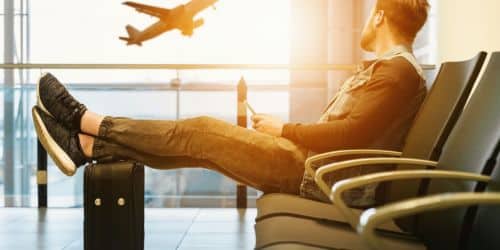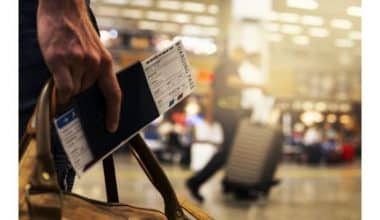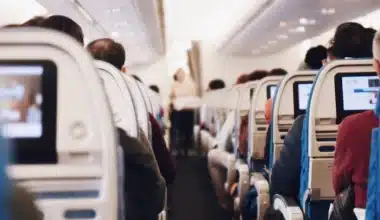The fear of visiting a new, unfamiliar place, along with the stress of travel planning, can result in what is known as travel anxiety.
While not an officially documented mental health illness, anxiety about traveling can be severe for some people, preventing them from taking a vacation or enjoying any aspect of traveling.
Discover some of the most frequent symptoms and causes of travel anxiety, as well as tips and therapies to help you deal with it.
What is Travel Anxiety?
Travel anxiety, often known as vacation anxiety, is a sensation of worry or fear that develops when traveling.
Travel anxiety can make it difficult to arrange and go on vacations. The mere thought of traveling to a new location might cause feelings of fear, uncertainty, and intense anxiety.
This anxiety may prohibit you from seeing new locations, seeing new things, or even visiting loved ones who live far away.
While there is no recognized diagnosis for travel anxiety, it is a prevalent source of anxiety. When you have to or desire to travel, it might have a negative influence on your health.
There are techniques to help you overcome travel anxiety, even if it can feel overwhelming.
Therapy and medication are two popular treatment choices for any sort of anxiety. You can also learn how to deal with your symptoms.
Causes of Travel Anxiety
There is no single source of travel anxiety, and individual triggers vary. Some people have lived their entire lives with travel anxiety. You might develop it after having a negative travel experience. Or you could have it for no apparent reason.
Some of the most common reasons for travel anxiety are:
#1. Flying phobia.
Fear of flying is a typical issue among persons who suffer from travel anxiety. This fear could be brought on by:
- Turbulence in the air
- Landing and takeoff
- The concept of soaring thousands of feet above the ground
- Concerns about crashing
- Fear of being trapped
Even if you are aware that plane travel is statistically safe, you may experience similar sentiments. Getting out of your comfort zone. Do you ever feel uneasy while you are away from home? A severe form of this is agoraphobia or fear of public settings. This concern has grown in popularity after the COVID-19 pandemic.
#2. Travel horror tales.
Hearing too much terrible news about crimes and injuries that occur when people are traveling might have a negative impact on your psychological well-being. Travel may begin to evoke tragedy.
Concerns at the halfway point. You may not experience anxiety before traveling, but it can catch up with you once you’re on the road. You might be concerned about:
- The specifics of your lodgings once you arrive
- The discomfort of being in an unknown location, especially not understanding the local language or people.
- Jet lag’s consequences
- How to go to important sites, such as supermarkets or shopping centers
- Insufficient funds to complete the journey
#4. Your DNA, as well as your brain.
Scientists have discovered a relationship between genetics and anxiety throughout adolescence and beyond. Anxiety disorder sufferers also have alterations in some areas of the brain, according to research.
Symptoms of Travel Anxiety
A person suffering from travel anxiety may feel symptoms throughout the journey or at certain points. Booking travel tickets for an upcoming trip, for example, may cause anxiety in some people, while others may remain calm until the trip begins and then become nervous.
- Sleeping issues leading up to the travel date being unable to regulate feelings of worry and concern about traveling feeling restless or on edge while in airports or railway stations are some of the symptoms a person may face.
- Being impatient and short-tempered experiencing panic episodes, which may result in a racing heart, perspiration, and a sense of being out of control
- Sentiments of self-consciousness, and fear that others are evaluating them
Tips to Help You Overcome Travel Anxiety
If travel anxiety is interfering with your life, these tips can help you cope.
Working with a therapist or counselor can help you learn how to deal with anxiety and figure out what works best for you.
#1. Determine your triggers.
Anxiety triggers are items that cause your anxiety symptoms to worsen.
These triggers can be travel-related, such as arranging a trip or boarding an aircraft. Outside variables such as low blood sugar, coffee, or stress may also be included.
You can identify your triggers and work through them before traveling with the help of psychotherapy, an anxiety treatment option.
#2. Prepare for specific scenarios.
Pre-travel anxiety is frequently caused by the “what if” aspect of traveling. While no one can anticipate every possible worst-case scenario, it is possible to prepare for some of the more prevalent ones, such as: What if I run out of money? I can always contact a family member or a friend. I can bring a credit card in case of an emergency.
What if I get misplaced? I can carry a paper map or guidebook as well as my phone.
What if I become sick during the trip? I can get travel health insurance before I leave, or I can make sure my current policy will cover me. Most insurance policies provide access to a network of healthcare professionals located around the country or the world.
By pre-planning for instances like these ahead of time, you’ll realize that most difficulties have a solution, even when you travel.
#3. Prepare for home responsibilities while you’re away.
The prospect of leaving home produces anxiety in some people. Leaving the house, children, or pets alone might trigger severe anxiety. However, just like planning ahead for a trip, planning ahead for being away from home can help alleviate that anxiety.
Hire a house sitter or ask a trusted friend to stay at your home and take care of your affairs while you’re away. While you are away from your home, children, or pets, a professional sitter will offer you regular updates and communication.
#4. Bring a lot of distractions.
What is your favorite anxiety-relieving activity? For some, video games and movies provide a visual distraction to help them pass the time. Others find solace in peaceful pastimes like reading and puzzles.
Consider bringing your distraction with you for the voyage. Distracting yourself with enjoyable activities can help you avoid negative thoughts and focus on something positive instead.
Relaxation should be practiced.
Before you depart, learn relaxing techniques that you can employ while on your trip. According to research Trusted Source, mindful meditation can considerably lessen anxiety symptoms.
Deep breathing, muscle relaxation, and centering yourself can all help you relax and deal with anxiety.
#5. Travel with your friends
Bring a travel companion if you suffer from travel anxiety. There are numerous companion or group activities to enjoy if you choose to travel with someone else.
You can find yourself being more open and adventurous around someone who makes you feel at ease. You might even make a few new pals to travel with by the end of the journey.
#6. Think about medication.
If treatment, preparation, and diversions aren’t enough, medication is an alternative. Benzodiazepines and antidepressants are the two categories of medication most frequently recommended for anxiety.
According to findings from a 2017 study, selective serotonin reuptake inhibitors (SSRIs) are the most effective for long-term anxiety treatment.
A benzodiazepine, such as lorazepam, can provide short-term, rapid relief in the event of a panic attack while traveling.
#7. Discover the benefits of traveling.
Traveling is a popular pastime, so much so that Americans took over 1.8 billion leisure excursions in 2018. Exploring new experiences, cultures, and cuisines is a wonderful way to broaden your horizons.
Before your journey, make a list of all the wonderful experiences you wish to have while traveling. As you travel, keep this list with you and refer to it in times of anxiety.
How Can You Diagnose Anxiety?
Anxiety becomes a significant problem when it interferes with your daily life.
The Diagnostic and Statistical Manual of Mental Disorders (DSM-5) is one of the most commonly used diagnostic tools for anxiety disorders. According to the DSM-5 criteria, you may have an anxiety disorder if you have excessive anxiety on most days, have at least three or more common anxiety symptoms on most days for more than six months, and have difficulty controlling your anxiety for more than six months.
Your anxiety creates significant stress and interferes with your everyday life; you do not have any other mental disorders that could be causing the anxiety symptoms; and you do not have any other mental illnesses that could be causing the anxiety symptoms.
If you fulfill a certain number of these criteria, depending on the severity, your doctor may diagnose you with an anxiety condition or phobia.
When to See a Doctor
It’s normal to experience anxiety in new or unfamiliar settings. However, if the anxiety is causing a disruption in one’s life and preventing them from living it fully, they should consult a doctor.
Anxiety is not a harmful disorder in and of itself, but a doctor can rule out any other health issues that may be causing the symptoms. They can also recommend appropriate treatments to prevent anxiety from worsening.
Is It Natural to Experience Anxiety Before a Trip?
Yes, it’s normal to feel anxious when you’re out of your comfort zone. This is especially true for those of us who haven’t been far away from home in a long time. Anxiety, excitement, and a rise in energy motivate us to perform better and, in most situations, to concentrate more. However, there is a significant difference between having a healthy sense of urgency or worry and dealing with anxiety when on the go.
Summary
Anxiety about travel can seriously impair your capacity to enjoy vacations. It can induce symptoms such as rapid heartbeat, difficulties sleeping, and even panic episodes.
However, vacation anxiety does not have to keep you from enjoying travel and all of its associated experiences. You can take efforts to alleviate your anxiety and make your life easier. Strategies, therapy, and, in certain cases, medication can all be utilized to assist you in managing.
If you’re having trouble getting over your fear of flying, a healthcare or mental health expert can assist you. They can assess whether an underlying ailment is to blame and help you devise a treatment plan so you can start enjoying your travels rather than being overwhelmed by them.
Related Articles
- WHAT IS TRAVEL WRITING? Tips On Better Writing
- HOW TO TRAVEL ALONE: Detailed Guide
- Top 50 Jobs That Pay You To Travel In 2023
- How to Become a Travel Agent Without Experience (Detailed Guide)
- WHAT DOES TRAVEL INSURANCE COVER? All You Need To Know






